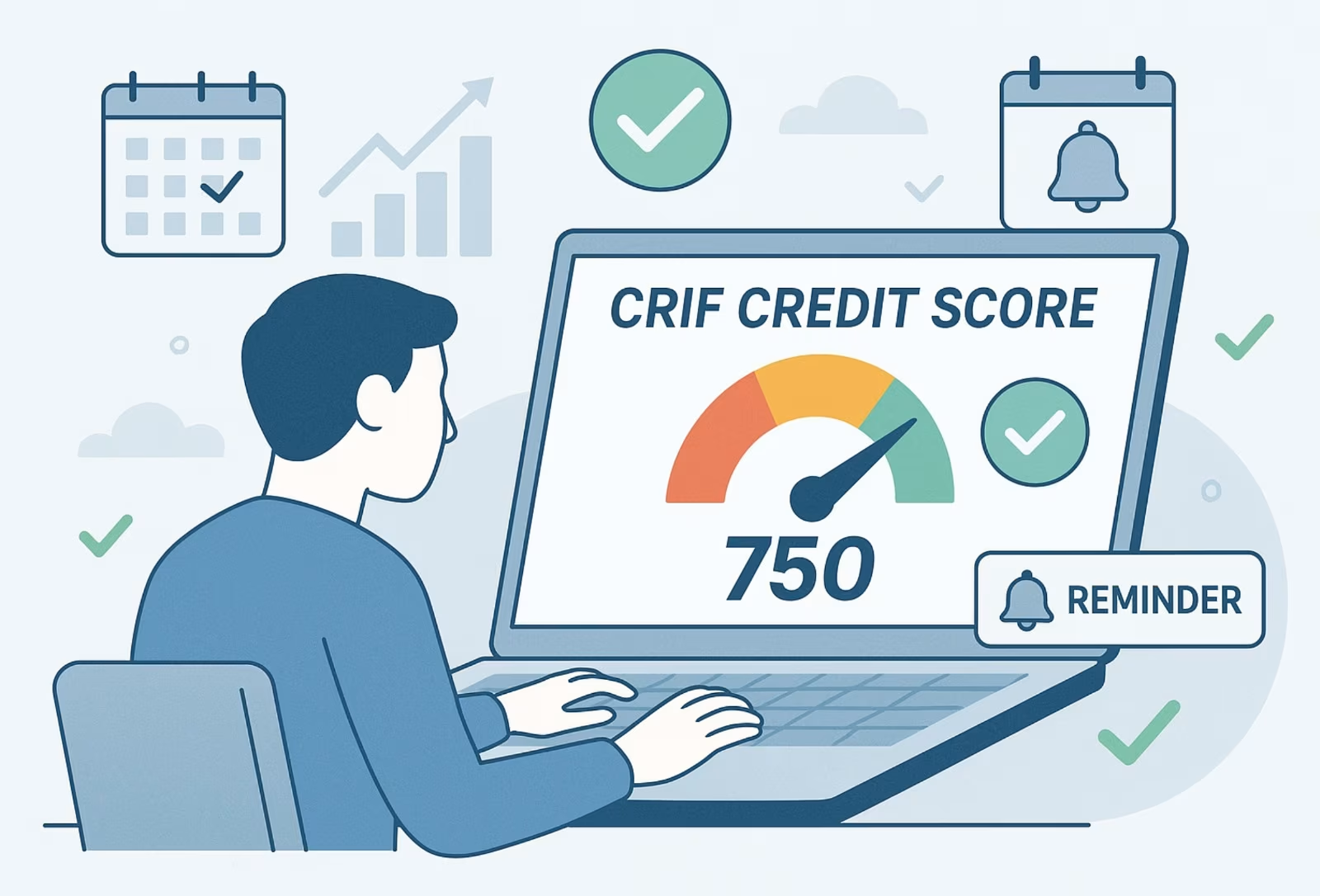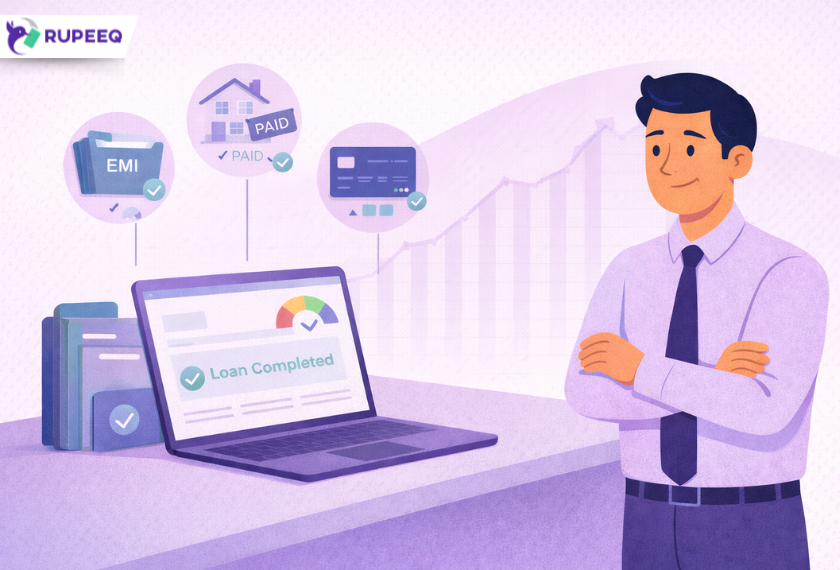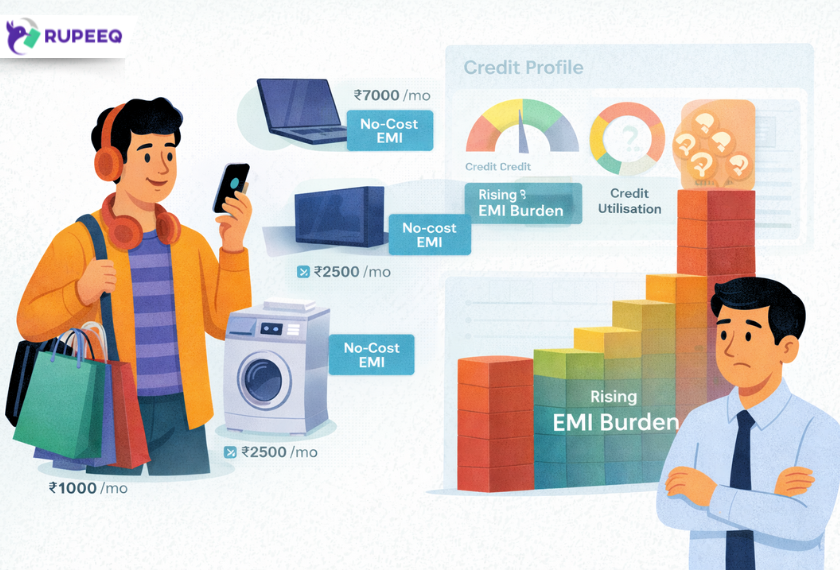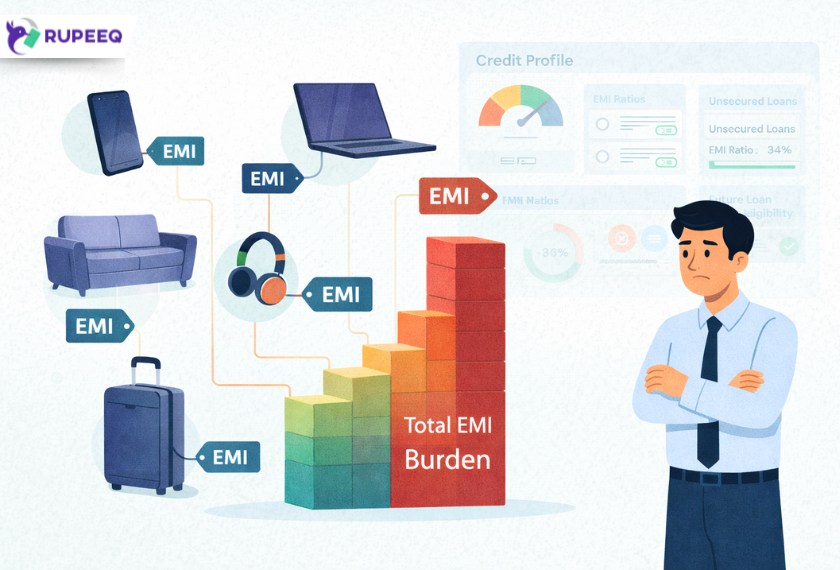Your CRIF credit score is one of the most crucial indicators of your financial health. It tells lenders how likely you are to repay loans on time, and plays a key role in determining whether you get approved for credit cards, personal loans, home loans, and more. But a common question many people have is: How often should you check your CRIF credit score?
In this guide, we’ll explore why regular checks are important, how frequently you should monitor your score, and how tools like RupeeQ ACE can help you stay on top of your credit health without affecting your score.
Why Checking Your Credit Score Matters
Your credit score isn’t static. It changes based on your credit behavior, including:
- Timely or missed EMI payments
- Changes in your credit card balances
- New loan applications
- Closure of old loans or credit cards
These changes are reflected in your CRIF credit score, often updated monthly when lenders report new data to the credit bureau.
Checking your score regularly ensures:
- You catch errors early: Sometimes lenders report incorrect information—such as an overdue payment you’ve already cleared. Regular checks help you identify and dispute these mistakes quickly.
- You avoid surprises: Knowing your score before applying for a loan or credit card means you won’t face sudden rejections or high-interest offers.
- You stay motivated to maintain good credit habits: Seeing your score improve (or drop) is often the best reminder to pay EMIs on time and keep debt under control.
RupeeQ Tip: RupeeQ ACE lets you check your CRIF credit score for free, as often as you like, without hurting your score. It also gives you insights into factors affecting your score and tips to improve it faster.
How Often Should You Check Your CRIF Credit Score?
📥 Get Free Instant Credit Report
While there’s no fixed rule, here’s a simple guideline:
- Every 3 months: This is a good baseline if you’re maintaining stable credit habits, paying EMIs on time, and not actively seeking new credit.
- Every month: If you’re planning to apply for a big loan soon—like a home loan, personal loan, or car loan—monthly checks ensure you spot errors or dips before they affect your application.
- Immediately before a major loan application: At least 1–2 months before applying for a loan, check your score. This gives you time to fix issues or improve your score if needed.
Example:
Amit plans to apply for a home loan in the next 3 months. He checks his CRIF credit score today and notices it has dropped due to a small overdue credit card balance he forgot to pay. Because he checked early, he’s able to pay off the overdue, clear the error, and see his score improve before applying.
When Should You Check Your Score More Frequently?
You should check your score more often (monthly) if:
- You recently closed a loan or paid off a big chunk of debt
- You had trouble making payments in the past and want to track improvements
- You suspect fraud or unfamiliar accounts on your report
- You are actively building your credit history (for example, new-to-credit borrowers)
- You’re applying for multiple loans in the next few months
Example:
Neha recently settled two old credit card debts and is rebuilding her credit profile. She checks her CRIF score monthly to watch for changes and ensure her payments are reported correctly.
Does Checking Your Score Frequently Hurt It?
No. Checking your own CRIF credit score using platforms like RupeeQ ACE is considered a soft inquiry, which has no impact on your score. Only when a lender checks your report during a loan or credit card application (a hard inquiry) does it affect your score slightly.
RupeeQ Tip: Don’t worry about checking your score often. In fact, regularly reviewing your report helps you maintain control of your financial future and prepare for credit needs in advance.
Why Monitoring Your Credit Report is Equally Important
While checking your score is important, reviewing your credit report is just as crucial. Your report shows:
- Details of active and closed accounts
- Repayment history (including missed or late payments)
- Overdue amounts
- Recent credit inquiries
Sometimes, your score drops because of incorrect or outdated data in the report. Regular reviews help you catch these issues early.
How to Check Your CRIF Credit Score
You can check your CRIF credit score:
- Directly on the CRIF Highmark website (free once a year)
- Through RupeeQ, where you can check your score for free anytime, plus get detailed analysis and improvement suggestions through RupeeQ ACE
Steps on RupeeQ:
- Log in to your RupeeQ account
- Enter basic details (like PAN and mobile number)
- Get your free CRIF credit score instantly
- Review personalized insights and tips to improve your score
So, How Often Should You Check Your Credit Report
Your CRIF credit score is a snapshot of your credit health—and it’s something lenders check carefully before approving your loan or credit card. While checking your score too often through lenders can hurt it (due to hard inquiries), checking it yourself through platforms like RupeeQ ACE is safe and recommended.
For most people, checking their score every 3–6 months is enough. But if you’re actively seeking credit or rebuilding your score, monthly checks ensure you catch issues early, avoid rejections, and negotiate better loan terms.
Stay proactive, watch your credit health grow, and let your CRIF credit score be the ticket to better financial opportunities.
Frequently Asked Questions (FAQs)
Does checking my CRIF credit score lower it?
No. When you check your own score (using RupeeQ or CRIF portal), it’s considered a soft inquiry and does not impact your score.
Why is my score different from last month?
Your score changes as new data (payments, loan closures, new inquiries) is reported by lenders every month. Even small changes in credit utilization or delayed payments can affect your score.
Should I check my score with other bureaus too?
Yes. While CRIF is widely used, some lenders also rely on other bureaus like CIBIL. Knowing your scores from multiple bureaus helps you prepare better.
What should I do if I find an error in my report?
Raise a dispute through the CRIF portal or via RupeeQ’s dashboard immediately. Provide supporting documents if needed.
How do I improve my score quickly?
Pay off overdue balances, reduce credit card usage below 30% of the limit, pay EMIs on time, and avoid applying for multiple loans at once.







